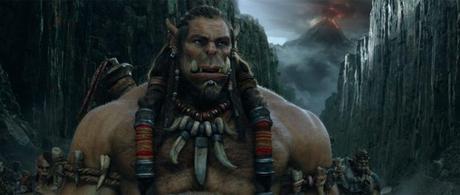
Summer has been a fickle mistress for Hollywood these past couple of years. It's either hot or cold, but at a historic level. The summers of 2013 and 2015 set records for total box office gross (#'s 1 and 2 on that list respectively), and 2014 set a record for the single biggest year-to-year drop-off for any summer since 1982. Thus far, even with Captain America: Civil War and Finding Dory the summer of 2016 is looking like another cold year. As of two weeks ago, the total box office was 22% off of last summer's pace. The way it's going, it's either go big or stay home and watch Netflix.
In fact, far more people are opting for the latter than it might already seem because actual attendance has been down for a decade, both overall and specific to the summer. For example, even though 2015 was the second highest-grossing summer in box office history it was the fourth-lowest attended summer since 1995, with the lowest being 2014.
Even that statistic can be misleading, though. 2013 had the highest attendance of any summer of the past decade, yet when you look back on it you see a list of high-profile disappointments - R.I.P.D., After Earth, White House Down, Turbo, Pacific Rim, The Lone Ranger, Epic and Percy Jackson: Sea of Monsters. Four of the studios which released those flops - Universal, Sony, DreamWorks and Warner Bros. - are under new leadership now, and the other two - Disney, Fox - had just gone through a regime change one year prior. Hollywood executives are like general managers and coaches in sports in that they are hired to someday be fired. However, the executive turnover at Universal and WB happened specifically after 2013's disappointing summer, and the high profile misses certainly factored into the later oustings of Amy Pascal at Sony and Jeffrey Katzenberg at DreamWorks.
When the book was closed on 2013, The Hollywood Reporter published a list of 5 ways the industry could fix its summer movie box-office crisis. It's 3 years later and THR is now telling us the current summer is another crisis-level season, pointing to sequels which no one wanted as the primary culprit. However, let's book at the five lessons the industry was supposed to learn after 2013, and see if anything has actually changed.
2013: A crowded release calendar is considered the chief culprit behind the summer pileups. Beginning in mid-June, five action tentpoles aimed mostly at men opened on consecutive weekends. The first two - Warners' Man of Steel and Paramount's World War Z - survived the onslaught. But then White House Down, Lone Ranger and Pacific Rim came up short.
"I believe many of them would have done bigger business if they were released during another time of the year," says John Fithian, president of the National Association of Theatre Owners. "They need room to breathe, and they didn't get it."
Let's see. This summer we've had:
- Captain America: Civil War (an action tentpole) followed by...
- Money Monster (a star-driven adult drama) and The Darkness (a micro-budget horror flick) followed by...
- The Angry Birds Movie (an animated kids movie), Neighbors 2 (an R-rated comedy) and The Nice Guys (a star-driven R-Rated buddy cop comedy) followed by....
- X-Men: Apocalypse (action tentpole) and Alice: Through the Looking Glass (3D tentpole) followed by...
- TMNT: Out of the Shadows (for the kids and their nostalgic parents), Me Before You (for the women) and Popstar (for the teenagers) followed by...
- Warcraft (action tentpole), The Conjuring 2 (for horror fans) and Now You See Me 2 (technically for the women since Now You See Me was female-driven at the box office) followed by...
- Finding Dory (for the kids), Central Intelligence (star-driven buddy cop comedy, also the first and only non-white actor-driven comedy of the summer)
The most glaring mistake I see is opening Apocalypse, TMNT and Warcraft in consecutive weekends, particularly TMNT and Warcraft (for the record, TMNT won't open in China until a month after Warcaft). Here in the States, Paramount would have been wiser to save TMNT for August where the first film flourished. Slotting something like Neighbors 2 or The Nice Guy in-between Apocalypse and Warcraft would have made more sense in terms of counter-programming.
 Other than that, there has been fairly decent variety among the major releases each weekend, no doubt greatly enhanced by the studios choosing to turn March and April into battlegrounds by releasing would-be summer movies like BvS, Zootopia, London Has Fallen, The Huntsman and The Jungle Book in those months.
Other than that, there has been fairly decent variety among the major releases each weekend, no doubt greatly enhanced by the studios choosing to turn March and April into battlegrounds by releasing would-be summer movies like BvS, Zootopia, London Has Fallen, The Huntsman and The Jungle Book in those months.
How does the rest of the summer look?:
- Free State of Jones and ID4:Resurgence followed by...
- The Shallows followed by....
- [START OF JULY] The BFG, Tarzan and The Purge
- Mike and Dave Need Wedding Dates and The Secret Life of Pets
- Ghostbusters, The Infiltrator and The Lake
- Star Trek: Beyond, Ice Age: Collision Course and Lights Out
- Jason Bourne and Bad Moms
- [START OF AUGUST] Suicide Squad, The Founder, Nine Lives
- Ben-Hur, Florence Foster Jenkins, Pete's Dragon, Sausage Party and Spectral
- Arms and the Dudes, Kubo and the Two Strings and The Space Between Us
- Hands of Stone, Man in the Dark, Max Steel, Mechanic: Resurrection
Wow. July is going to be brutal. You have two major animated films ( Secret Life of Pets, Ice Age) opening within two weeks of each other, and you have three action tentpoles ( Ghostbusters, Star Trek: Beyond and Jason Bourne) opening in consecutive weekends followed by one of the biggest comic book movies of the year, Suicide Squad. They're not all necessarily targeting the same exact audience, especially Ghostbusters, but there's still some significant overlap. Perhaps that's unavoidable at this point.
Did Hollywood learn its lesson? Partially. By now, the studios have adapted to year-round scheduling thus reducing the overwhelming number of big budget spectacles in the summer, but there are still a lot of them (and lots of sequels, regardless of budget). That being said, this summer certainly doesn't lack for comedies, some R-Rated, some not, most of them non-sequels e.g., The Nice Guys, Popstar, Central Intelligence, ...Need Wedding Dates, Bad Moms and Sausage Party plus Neighbors 2 and Ghostbusters. Until you get to July, the summer is fairly diverse on a week-to-week basis, or at least better than it's being given credit for.
2013: If a studio is going to spend huge sums on a tentpole, the money better show onscreen. But execs can't seem to rein in top producers and directors who have made previous blockbusters. Disney tried to cut back the budget on Jerry Bruckheimer and Gore Verbinski's Lone Ranger, only to see it creep back above $250 million during production. Sony gave Roland Emmerich $160 million to make White House Down, even when there was a rival project, Olympus Has Fallen, on track to hit theaters first. Sony also obliged Will Smith when he brought in After Earth, a starring vehicle for son Jaden.
Understand that we're not talking about Neighbors 2 costing twice as much to make as its predecessor. That's pocket change to Hollywood. We're only talking about the biggest of the big budgets, and how 2013 was supposed to teach the industry to reign in spending and minimize risk. TMNT is a positive example of that lesson having been learned. Out of the Shadows was made for a relatively modest $135m, a mere $10m increase over its predecessor, and much of that came from co-financing deals with Chinese partners. Paramount's other big tentpole, Star Trek Beyond, currently carries an official budget of $150m, which is a shockingly cost-conscious $40m decrease from Into Darkness. In those two examples, there's a movie (the first TMNT) which became a hit and triggered a barely more expensive sequel, and a movie ( Into Darkness) which was a disappointment in relation to its budget and thus resulted in a cheaper sequel.
 Fox likely followed a similar logic when it slashed X-Men: Apocalypse's budget by at least $50m from Days of Future Past (i.e., the second most expensive film in studio history). Disney somewhat controlled costs on its Alice sequel ($170m compared to the original's $200m, although the better cost-control would have been not making the movie altogether), and Universal did the same with Jason Bourne ($120m, roughly the same as the $125m spent on the Jeremy Renner's 2012 Bourne movie). Even a gamble like Warcraft was made somewhat more cheaply ($160m) than it would have been three years ago (when Pacific Rim cost $190m).
Fox likely followed a similar logic when it slashed X-Men: Apocalypse's budget by at least $50m from Days of Future Past (i.e., the second most expensive film in studio history). Disney somewhat controlled costs on its Alice sequel ($170m compared to the original's $200m, although the better cost-control would have been not making the movie altogether), and Universal did the same with Jason Bourne ($120m, roughly the same as the $125m spent on the Jeremy Renner's 2012 Bourne movie). Even a gamble like Warcraft was made somewhat more cheaply ($160m) than it would have been three years ago (when Pacific Rim cost $190m).
 That being said, WB had no problem turning BvS - which was originally supposed to come out this summer - into one of the most expensive films of all time. For some reason, they also devoted an insanely high $180m to Legend of Tarzan. Fox and Sony are taking very big swings on ID4: Resurgence (a $200m budget) and Ghostbusters ($154m) respectively, but at least that makes sense based on franchise history. Tarzan, on the other hand, well the trailers actually look good, but who was actually asking for this movie (and at that cost)? Also, apparently Suicide Squad somehow cost north of $200m. WB is looks like a studio on the verge of a regime change.
That being said, WB had no problem turning BvS - which was originally supposed to come out this summer - into one of the most expensive films of all time. For some reason, they also devoted an insanely high $180m to Legend of Tarzan. Fox and Sony are taking very big swings on ID4: Resurgence (a $200m budget) and Ghostbusters ($154m) respectively, but at least that makes sense based on franchise history. Tarzan, on the other hand, well the trailers actually look good, but who was actually asking for this movie (and at that cost)? Also, apparently Suicide Squad somehow cost north of $200m. WB is looks like a studio on the verge of a regime change.
Did Hollywood Learn Its Lesson? Surprisingly, yes, just not at WB (at least specific to summer movies).
3. Don't Forget the Ladies
2013: Skeptics were surprised when The Great Gatsby grossed $329.9 million worldwide. But it appealed to women, a demo historically marginalized in the summer. Such female-fueled hits as The Heat and Now You See Me, as well as the horror pics Conjuring and The Purge, also owe a big part of their success to females.
And here we are in a summer with sequels to Now You See Me, Conjuring and The Purge. It remains to be seen how The Purge: Election Year will fare, but both The Conjuring 2 and Now You See Me 2 opened below their predecessors, though not significantly (Conjuring 2 missed it by just over $1m). However, Seth Rogen and Nicholas Stoller turned Neighbors 2 into a surprisingly feminist comedy in which the women are allowed to be as messy as the men, and audiences just couldn't have cared less (it'll probably end up a bit over $60m domestic compared to Neighbors 2 's $150m).
An old-fashioned weepie based on a beloved novel ( Me Before You) will end its run as a modest hit, but nowhere near the heights of Fault in Our Stars ($124m), although there you're comparing a general female audience to a hyper-specific and fiercely loyal YA female audience. I doubt the latter was really lining up to see their beloved Justin Bieber parodied in Popstar.
The rest of the summer brings a horror/thriller set in the fashion industry ( Neon Demon), a female empowerment spin on Jaws/ Open Water ( The Shallows, which looks kind of amazing), shirtless Alexander Skarsgard for two hours ( Tarzan), Aubrey Plaza and Anna Kendrick playing the kind of garbage human being roles men have been playing in comedies for decades ( ...Need Wedding Dates) and Kristen Bell, Mila Kunis and Christina Applegate as self-indulgent, R-Rated moms ( Bad Moms). Plus, you know, Ghostbusters. Don't forget that Finding Dory is also female-fronted, and Meryl Streep has Florence Foster Jenkins in August. Plus, there are various non-female-fronted movies which women might totally go for (not all Star Trek fans are dudes, you know).
Did Hollywood Learn Its Lesson? Yes, but the Ghostbusters pushback has been sobering, and the reality is not all movies catch on, regardless of the intended audience. Plus, gender diversity seems like such a 2013 buzz topic. What I really see now is just how lilly white the summer is among its major releases.
4. Cool It With the Cartoons
2013: An unprecedented number of animated films is testing the market. Historically, there have been two or, at most, three a summer. In 2013, there have been five, plus CGI/live-action The Smurfs 2 coming July 31. Pixar's Monsters University, Universal's Despicable Me 2 and DreamWorks Animation's Turbo opened two weeks apart, and Turbo suffered, bowing to only $31 million in North America.
"We had a tsunami in front of us," says Chris Aronson, distribution chief at Fox, which released Turbo. "While we felt that two weeks was an adequate window, we didn't expect to be swamped like we were."
Oh, how cute. Look at them freaking out about five animated movies and 1 CGI/live-action hybrid in 2013. This year, we've got 6 animated movies ( Angry Birds, Finding Dory, The Secret Life of Pets, Ice Age: Collision Course, Sausage Party, Kubo and the Two Strings) and 3 CGI/live-action hybrids ( Warcraft, The BFG, Pete's Dragon....technically, I could also include TMNT). To be fair, Sausage Party doesn't really belong on that list (it's the rare R-rated animated film), and there was plenty of calender space between Angry Birds and Finding Dory. Still, animated movies are clearly here to stay in the summer.
Did Hollywood Learn Its Lesson? Ahhhhhhhh, hell no.
2013: One mogul puts it simply, "Truthfully, the movies that flopped this summer didn't deserve to do any more business than they did."
Warcraft, TMNT, Apocalypse, Alice and Now You See Me 2 are all performing roughly in line with their reviews, but, dangit, Neighbors 2, The Nice Guys and Money Monster deserved better, as have the various indies (e.g., Sing Street) struggling to find any breathing room.
Did Hollywood Learn Its Lesson? It's not a simple yes or no. At this point, it's more like Hollywood has to learn not to make better movies but to make more of the right kinds of movies. Sadly, though, summer 2016 has thus far indicated that while there's risk attached to sequels you're still better off backing sequels, animated movies and comic books than star-driven originals (e.g., Money Monster, The Nice Guys) or anything that's not the lowest common denominator. Disney and its various IP silos (Pixar, LucasFilms, Marvel, Disney Animation) has this formula down to a science, and they've owned March ( Zootopia), April ( Jungle Book) and May ( Civil War) and will do so again with June ( Finding Dory). Heck, they have established a brand which can launch original properties at blockbuster levels ( Zootopia). It's their world, and everyone else is just drowning in it.
Three years removed from the summer of bombs, Hollywood has somewhat diversified its release schedule, trimmed production budgets and upped the number of female-fronted titles, but it's still as addicted to animated films as ever and can't resist the urge to turn everything into a franchise nor can it tell the difference between a hit movie and a hit movie which people actually want to see more of (not even Disney is immune to that, thanks to Alice). Plus, there's not a lot of racial diversity to be found (a Will Smith here, a Leslie Jones there).
I'll close with this quote from Magnolia Pictures president Eamonn Bowles:
I think the LCD [lowest common denominator] factor has been ramped up in Hollywood the past few years. They're conforming to their audiences. If exquisitely intellectual films about difficult subject matters did a lot of money, Hollywood would be all over it. The studios are making movies for a global audience. Things are reduced to a sort of universal wow factor.
But when absolutely everything is supposed to wow us we eventually start to yawn and ask, "What else ya got because I'd rather stay home and watch O.J.: Made in America or catch up on Preacher?" Unless it's something from Pixar, LucasFilm, Marvel or Disney Animation because the chances are the last film we saw from them was pretty awesome or at least worth the ever-rising cost of admission.

